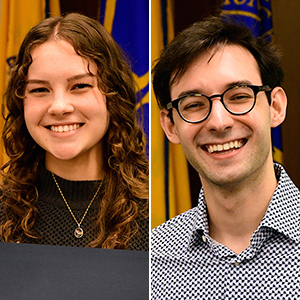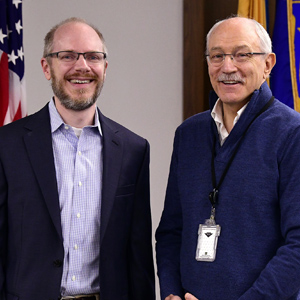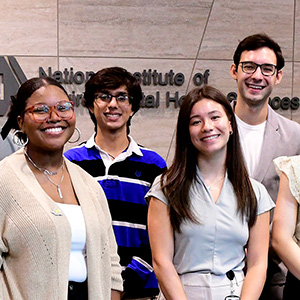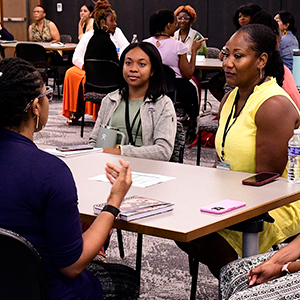The NIEHS Diversity Speaker Series recognized Native American Heritage Month with a Nov. 30 webinar featuring Ashley Wells, principal strategist for the National Institutes of Health (NIH) Special Emphasis Portfolio for Native Americans.
Wells was the final speaker in the 2021 series, which was sponsored by the NIEHS Office of Science Education and Diversity. She leads one of seven portfolios designated by the NIH Office of Equity, Diversity and Inclusion (EDI).
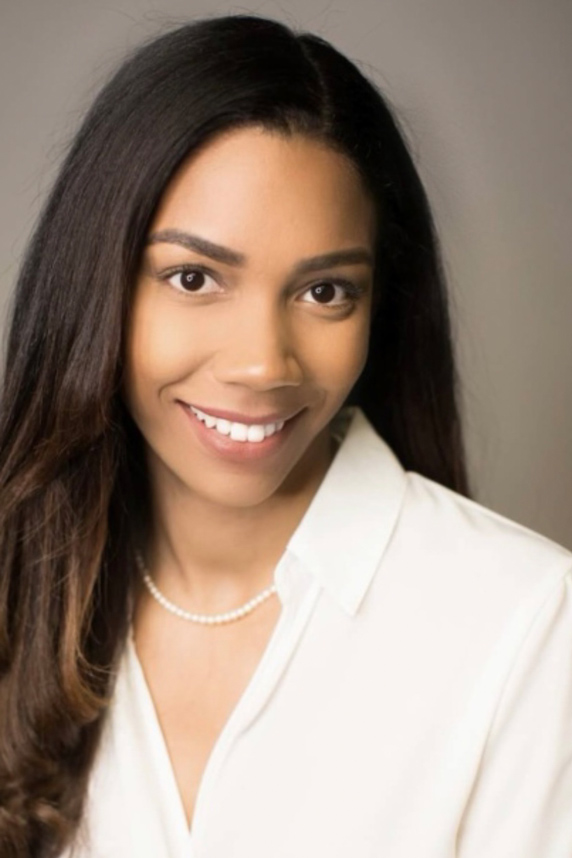 “Native American, American Indian, and Indigenous American are all acceptable terms of reference, although different people have different preferences,” said Wells. She recommended first asking how someone would like to be addressed. (Photo courtesy of Ashley Wells)
“Native American, American Indian, and Indigenous American are all acceptable terms of reference, although different people have different preferences,” said Wells. She recommended first asking how someone would like to be addressed. (Photo courtesy of Ashley Wells)Among her other efforts, Wells participates in policy reviews to help eliminate discrimination against Native American employees, and she serves as an NIH subject matter expert and program advocate. She is a member of the Occaneechi Band of the Saponi Nation, now centered in Alamance County, North Carolina.
“Within EDI, we monitor NIH workforce data and seek ways to build a stronger community by helping Native Americans advance and use their skills fully,” said Wells.
Eliminating stereotypes
“Diversity and inclusion enhance creativity, drive innovation, and help to expand our reach to customers around the world,” explained Wells. “The more diverse the NIH workforce, the more of a competitive advantage we have in research.”
Eliminating stereotypes about Native people, which often appear in the context of sports, is an important step toward cultural equality, according to Wells.
“Offensive mascots validate damaging tropes deeply ingrained in colonial history and society,” she said. “The National Congress of American Indians has been campaigning to eliminate these offensive team names since 1968.”
Overt and perceived racism can have serious negative mental health consequences, noted Wells.
“The American Psychological Association called for the elimination of Native American mascots in 2005,” she said. “They remind American Indians of the limited ways in which others see them and restrict how they can see themselves.”
Appreciation versus appropriation
Wells defined cultural appropriation as the unacknowledged or inappropriate adaptation of the customs, practices, or ideas of an individual or society by members of another, typically more predominant group.
“Do not reduce a culture to a fashion statement,” she said. “It is converting culturally significant artifacts, practices, and beliefs into mainstream culture and giving them a significance that is different and less meaningful.”
The objects and traditions of marginalized cultures, often seen by a dominant culture as exotic, are trivialized when coopted, diminishing them in the eyes of their practitioners, according to Wells.
“When their heritage is deployed for profit, the marginalized group loses its voice,” she added. “It is certainly not promoting diversity at all.”
Allies build solidarity
Native people do not need saviors, but they do welcome allies, noted Wells.
“Solidarity, when meaningful and not performative, is very important and impactful,” she said. “Ask for permission before taking part in in community events, especially ones that are sacred and spiritual.”
Showing cultural appreciation means listening to Native people and learning about their lives, Wells told attendees.
“Native Americans are not a monolith,” she said. “Each community is unique, with different customs, traditions, languages, and needs.”
Demonstrating cultural appreciation and competency requires being vulnerable, according to Wells.
“Enter conversations without fear of being criticized, but just know that you are not alone,” she said. “We are all learning. I identify as American Indian from an urban tribe, but when I interact with someone from another tribe, I have to ask questions, too.”
(John Yewell is a contract writer for the NIEHS Office of Communications and Public Liaison.)





